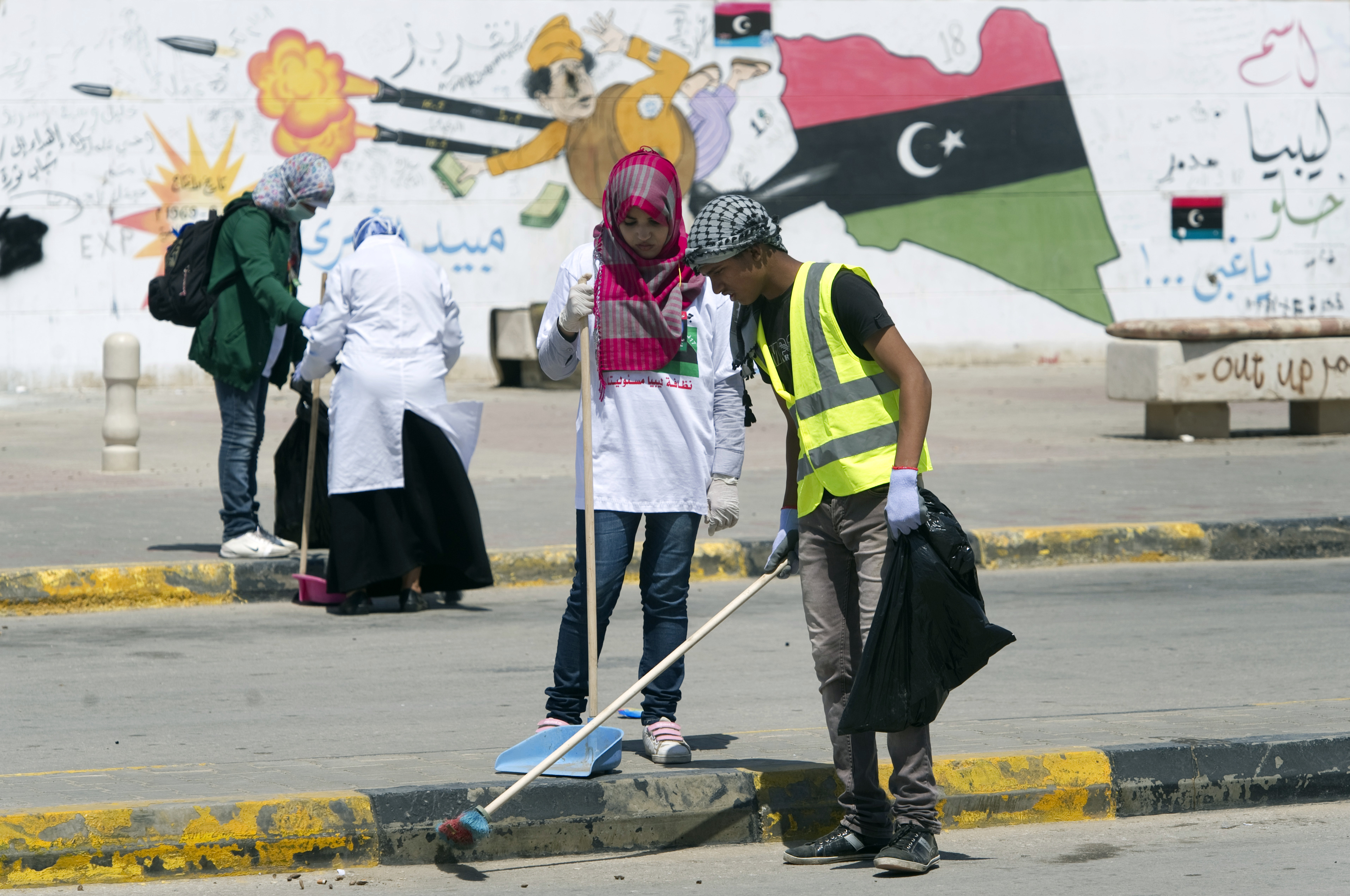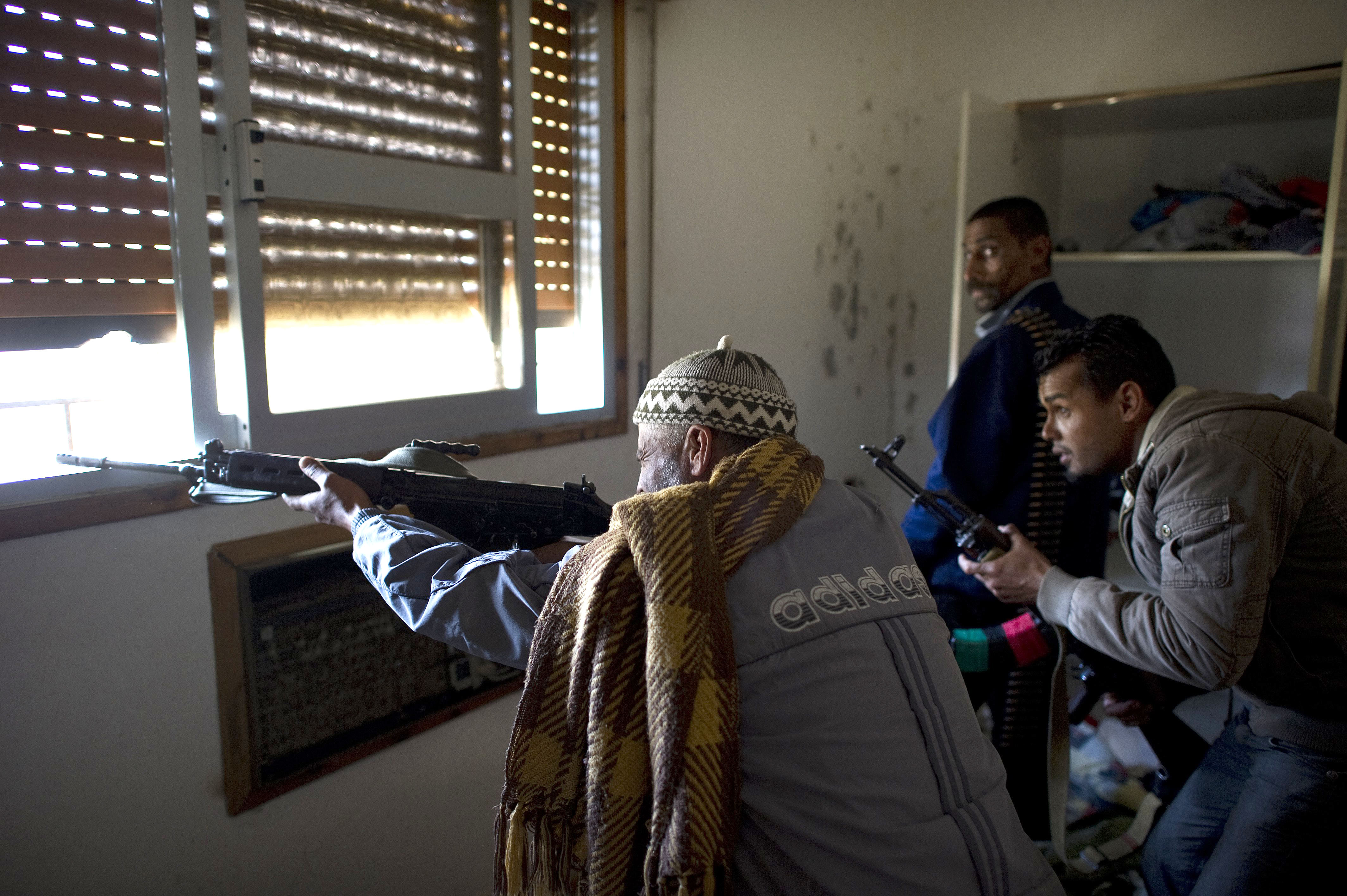NGO champions human rights in Libya

Libyan Human Rights Solidarity, which is based in Geneva, is working in conflict-torn Libya to promote human rights and rebuild institutions.
The non-governmental organisation’s secretary general, Khaled Saleh, spoke to swissinfo.ch shortly after his return from the rebel-held eastern Libyan city of Benghazi, where he also met Swiss aid representatives.
Libyans are expecting a lot from Switzerland, especially regarding benefiting from its experience in building democratic institutions and civil society organisations, said Saleh.
Opposition fighters, whose Benghazi-based National Transitional Council (NTC) is considered by many nations the sole government authority, have been battling Libyan leader Moammar Gaddafi’s forces for around six months. It is reported that the rebels are now making progress towards the Gaddafi stronghold of Tripoli. There were clashes in the capital on Saturday.
“As an organisation, we saw that it was important to be present and to work inside Libya in order to promote the culture of human rights on the largest scale,” Saleh said.
“At the moment we have an office in Benghazi that has started to organise conferences and training courses to raise Libyans’ awareness about human rights. We will organise the first training course for a group of lawyers, jointly with the Cairo Institute for Human Rights.”
The NGO is also helping to rehabilitate the role of civil society. “We criticised the performance of some organisations in the beginning, which led to the change of some laws and gave civil society a greater degree of freedom of movement,” he explained.
“In institution-building, we pay attention to making sure that the laws adopted are consistent with the articles in international conventions and treaties so as not to end up with constitutional violations that would be difficult to fix in the future.”
Captives
The NGO is active in western Libya as well. “We seek to teach the rebels how to deal with the captives from Gaddafi forces,” said Saleh.
He added that sometimes there were cases of retaliation, but these had to be seen in the context of the lack of a human rights culture in Libya under the Gaddafi regime.
The organisation has long been flagging up human rights violations in Libya – even before the uprising of February 17.
It has submitted reports on the abuses to United Nations human rights forums, including an account of what happened at the Abu Salim prison, where it has been reported that around 1,200 inmates were killed after an uprising in 1996.
In addition, the NGO has helped disseminate Libyan news through the Press Solidarity Agency, which provides international media with the latest developments in the field in the Libyan conflict.
Expectations
During his visit to Benghazi, Saleh also met officials from the Swiss liaison office and the Swiss humanitarian aid unit. Switzerland was one of the first western countries to offer aid in the rebel-held areas of Libya.
He said the meeting had provided an opportunity to “review what Switzerland is doing, and talk about what we – as Libyans and rights activists – wish or expect from Switzerland”.
“We noticed that they focus on the humanitarian side, such as the provision of medicines and starting the restoration of medicine stores,” Saleh said.
“We asked them to pay attention to reconstruction and the redevelopment of civil society organisations. This is the most important thing we see at the current and future stage.”
He added that there had been a “positive response” from the Swiss on the issue.
Libya of tomorrow
Saleh believes that Switzerland can play an important role in helping to build the Libya of tomorrow.
“We wish to benefit from the unique democratic system of Switzerland,” he explained.
“We also hope that Switzerland will play a role in building institutions through the transfer of such experience and awareness to the Libyan milieus, community and state, in order for Libya to be built on a democratic basis that takes into account the citizen’s voice during decision-making.”
As many important international organisations are based in Geneva, Saleh says that Bern could help in encouraging UN organisations and countries to contribute to the reconstruction of Libya.
He also believes that Switzerland could play a pivotal role by admitting the wounded who cannot be treated at Libyan or Tunisian hospitals, such as the young people who were injured in bombardments on cities or on the frontlines.
Switzerland was one of the first countries in Benghazi, opening a Swiss Humanitarian Aid programme office there in March.
On July 11 the country said it would send a diplomat to Benghazi to open a liaison office within the premises of the aid office. The envoy is tasked with strengthening Switzerland’s presence in the city and boosting political relations with the National Transitional Council.
“Until such time as a legally elected government is in place, the NTC is the sole legitimate partner for contact between Switzerland and Libya,” said the foreign ministry in a statement.
Swiss President and Foreign Minister Micheline Calmy-Rey had previously met NTC representatives in Bern and Tunis. The Swiss embassy in Tripoli has been shut since February 27 for security reasons.
(Translated from Arabic by Muhammad Shokry)

In compliance with the JTI standards
More: SWI swissinfo.ch certified by the Journalism Trust Initiative












You can find an overview of ongoing debates with our journalists here . Please join us!
If you want to start a conversation about a topic raised in this article or want to report factual errors, email us at english@swissinfo.ch.